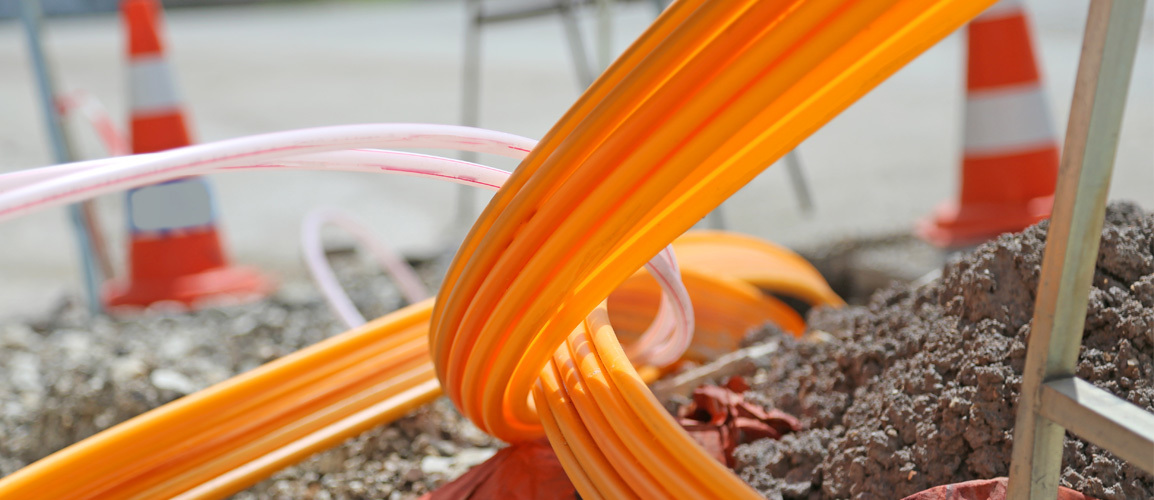Switching to Fibre Broadband - Top Five Fibre Fibs!
87% of New Zealanders will have access to fibre by 2020, according to a report by the Ministry of Business.
If you haven’t switched yet, what’s the hold up? Maybe you think you’ll have to dig up your driveway, but that’s one of the most common fibre myths around! What other fibre fibs might you have fallen for?
Instead of your driveway, we’re digging up the dirt on the top five fibre fibs! Get your facts straight here…
Myth 1. It’s expensive
Our entry level fibre plan is actually cheaper then ADSL / VDSL connections.
Some people are under the impression that they need to pay to get fibre available in their area, but 9 times out of 10, they don’t.
Organisations called Local fibre Companies (LFC’s) are responsible for organising fibre connections across New Zealand. They pay for the infrastructure, so you only pay for the standard installation charge to receive fibre from your street to your home (and with Voyager this is currently free!)
Most areas in New Zealand are already now equipped for fibre connections. It’s only for remote locations which are yet to be set up with fibre infrastructure where there may be an expectation for you to contribute towards the cost of set up.
To check if you can get fibre at your home, search your address here: voyager.nz/home
Myth 2. They’ll have to dig up my driveway
It’s a common myth that you have to dig up your lawn or driveway to have fibre installed at your property.
Once you choose fibre, a technician will visit your property and discuss with you about where is best to fit your connection. This could be along a fence or wall, installed underground through existing piping, or run overhead. Everything is agreed with you before the set up starts.
Your Local fibre Company (LFC) takes the fibre from the street to your property and connects it to a box on the outside of your house called an External Termination Point (ETP).
If you already have copper phone lines connected via an aerial cable or underground pipe, the fibre will probably be run along the same cabling or pipe, but if this isn’t feasible then the technician will work with you to install the fibre in a way that has the least impact to your property. If you do choose to have fibre cabled under your garden, then a shallow trench is hand dug and the grass easily replaced, but there are lots of other options for fibre connectivity before getting our hands dirty…
Chorus is one of the main local fibre companies in New Zealand, to read more about how they approach installing a new fibre connection, click here: Fibre broadband install methods
Myth 3. I’ll have to wait ages to get fibre broadband installed
Connecting to Fibre can be completed in a matter of weeks.
This is for a single standalone house. If you live in a block of flats or have a shared driveway for example, the process might take a little longer as consent is required from all affected properties / property owners before any install work can begin.
You will have to arrange to be home for a period of about 4 hours while your connection is being completed (a good excuse to put your feet up we think!)
Myth 4. fibre’s not really that much better than copper ADSL / VDSL
Fibre outperforms ADSL / VDSL every time.
A basic fibre connection has speeds of up to 1000/50, which is 100 times faster than ADSL. Faster speeds means no interruptions to your video streaming, gaming or video calls. It means saying goodbye to that buffering ring once and for all!
With copper broadband (ADSL or VDSL), the number of users, and what they’re doing on the internet impacts the quality of everyone’s experience. When you upgrade to fibre, you get the option to add on extra bandwidth which means you can have multiple users doing different activities online at the same time – without getting a compromised connection!
fibre is also a lot more reliable then copper based internet, as it’s a lot less susceptible to the weather conditions.
Another myth would be that fibre will end up costing more because you’re downloading more data at a faster rate, but on Voyager’s ‘Unchained’ fibre plan that really doesn’t matter, because data is unlimited!
Myth 5. I’ll lose my landline
You won’t lose your landline, or your existing home phone number when you switch to fibre.
Having a landline whilst using fibre is called a ‘VoIP’ system. VoIP stands for Voice over Internet Protocol. It basically means that your main phone line will be plugged into the router, and so your calls will take place over an internet connection. When the technician visits your home to make it ‘fibre ready’, they can set this all up for you, including connecting the phone jacks wherever they are in the house. Not to mention, calling rates over VoIP are highly competitive!
Ready to upgrade?
Voyager’s Unchained fibre plan offers unlimited data from just $69 per month. To upgrade, simply visit our fibre broadband address search page, complete the sign up form and select existing customer. Or you can give our team a call on 0800 477 333.
 Winners - Best Business Broadband Provider & People's Choice - Broadband 2025
Winners - Best Business Broadband Provider & People's Choice - Broadband 2025
